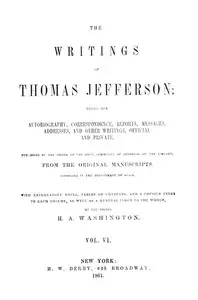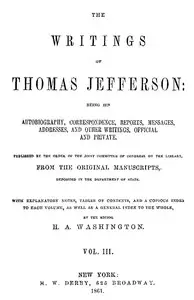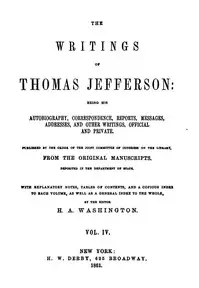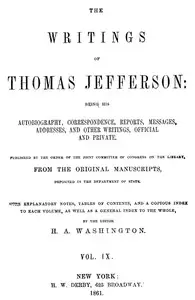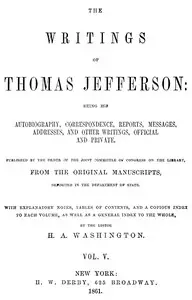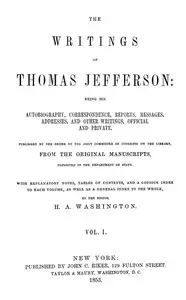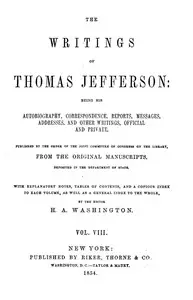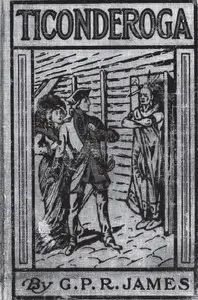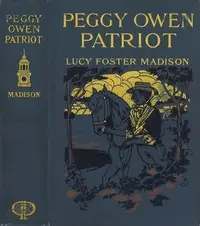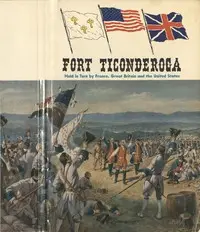"The Writings of Thomas Jefferson, Vol. 7 (of 9)" by Thomas Jefferson is a window into early America, presenting Jefferson's reflections on government, personal freedoms, and societal structures through his letters and other writings. The collection offers insight into Jefferson's philosophies and the political climate of his era. The opening sets the stage, showcasing Jefferson's correspondence after his return to the United States, where he champions limited government focused on protecting individual rights, while questioning governmental systems that stray from these core beliefs. Jefferson emphasizes the importance of justice, representation, and the constant need to guard against overreach of authority, setting a tone of thoughtful contemplation evident throughout the volume.
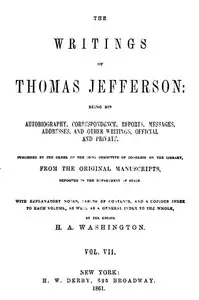
The Writings of Thomas Jefferson, Vol. 7 (of 9) Being His Autobiography, Correspondence, Reports, Messages, Addresses, and Other Writings, Official and Private
By Thomas Jefferson
Explore the mind of a founding father as he grapples with liberty, justice, and the ideal form of government in a nation taking its first steps.
Summary
About the AuthorThomas Jefferson was an American statesman, planter, diplomat, lawyer, architect, philosopher, and Founding Father who served as the third president of the United States from 1801 to 1809. He was the primary author of the Declaration of Independence. Following the American Revolutionary War and before becoming president in 1801, Jefferson was the nation's first U.S. secretary of state under George Washington and then the nation's second vice president under John Adams. Jefferson was a leading proponent of democracy, republicanism, and natural rights, and he produced formative documents and decisions at the state, national, and international levels.
Thomas Jefferson was an American statesman, planter, diplomat, lawyer, architect, philosopher, and Founding Father who served as the third president of the United States from 1801 to 1809. He was the primary author of the Declaration of Independence. Following the American Revolutionary War and before becoming president in 1801, Jefferson was the nation's first U.S. secretary of state under George Washington and then the nation's second vice president under John Adams. Jefferson was a leading proponent of democracy, republicanism, and natural rights, and he produced formative documents and decisions at the state, national, and international levels.

